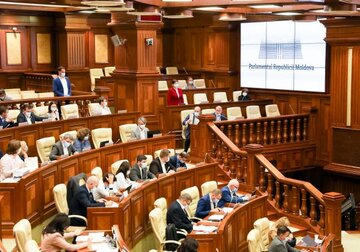
In Moldova, a new mechanism of control and sanctions has been created for the heads of state power bodies controlled by the parliament: the NCFM, NAER, the Competition Council and others, and new grounds for their resignation have been stipulated.
This is envisaged by amendments to the current legislation adopted by parliament members, which relate to the activities of the heads of the National Commission for the Financial Market, the Competition Council, the National Agency for Dispute Resolution, the Council on Television and Radio, and the National Agency for Energy Regulation. The main provisions of the approved draft law relate to the establishment of a control mechanism and sanctions for their leaders in the event of improper performance or non-performance of their duties, prerogatives or powers in accordance with the law or the implementation of improper activities, including by dismissal from office. The authors of the legislative initiative note that giving the parliament the right to dismiss members of autonomous bodies of state power after hearing annual reports on the activities means that the governing structures of these bodies are accountable to parliament. The amendments approved by parliament, in particular, stipulate that when determining the grounds for withdrawal due to improper performance or non-performance of official duties, prerogatives, powers or due to the establishment of improper activities, the relevant parliamentary commission should conduct an objective and transparent analysis of the institutional management of the decisions taken by the body, reports on the activities of the body, audit reports, complaints, petitions, individual performance objectives and indicators of achievement of the assessed person or other relevant data and information collected or submitted to the commission. Based on the analysis, the profile parliamentary commission should draw up a report assessing the managerial skills and professional competence of the council member, the performance of his/her duties and tasks, or, as the case may be, the effectiveness of the institution. In the process of considering the grounds for withdrawal, the relevant parliamentary commission can hear the members of the Administrative Council, any employee of the institution in which they work, and can also request and receive any relevant information from individuals or legal entities. When the profile parliamentary commission determines that there are grounds for the withdrawal, it will draw up a motivated report outlining the facts, circumstances and conditions that serve as the basis for the withdrawal, and submit it to the plenary session of parliament. And on the basis of the report of the Commission on Economy, Budget and Finance, the parliament, by a majority vote of deputies, can recall the members of the Administrative Council from the state authorities controlled by the parliament. The decision of the parliament can be challenged in court.// 09.09.2021 — InfoMarket







